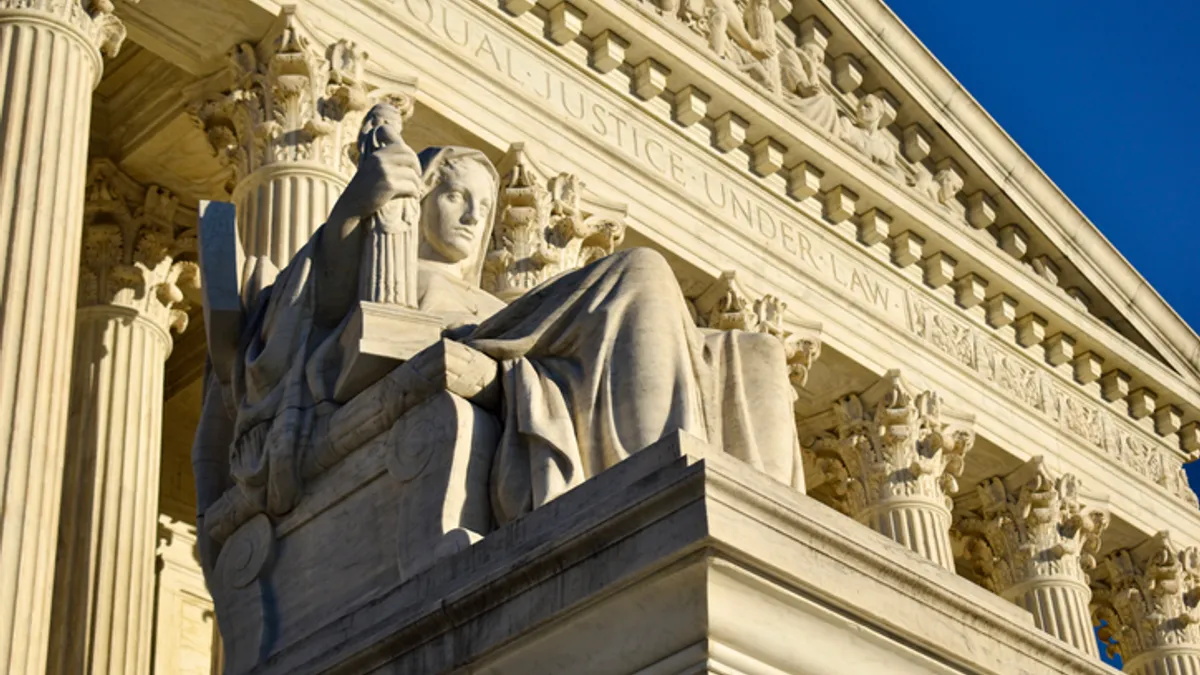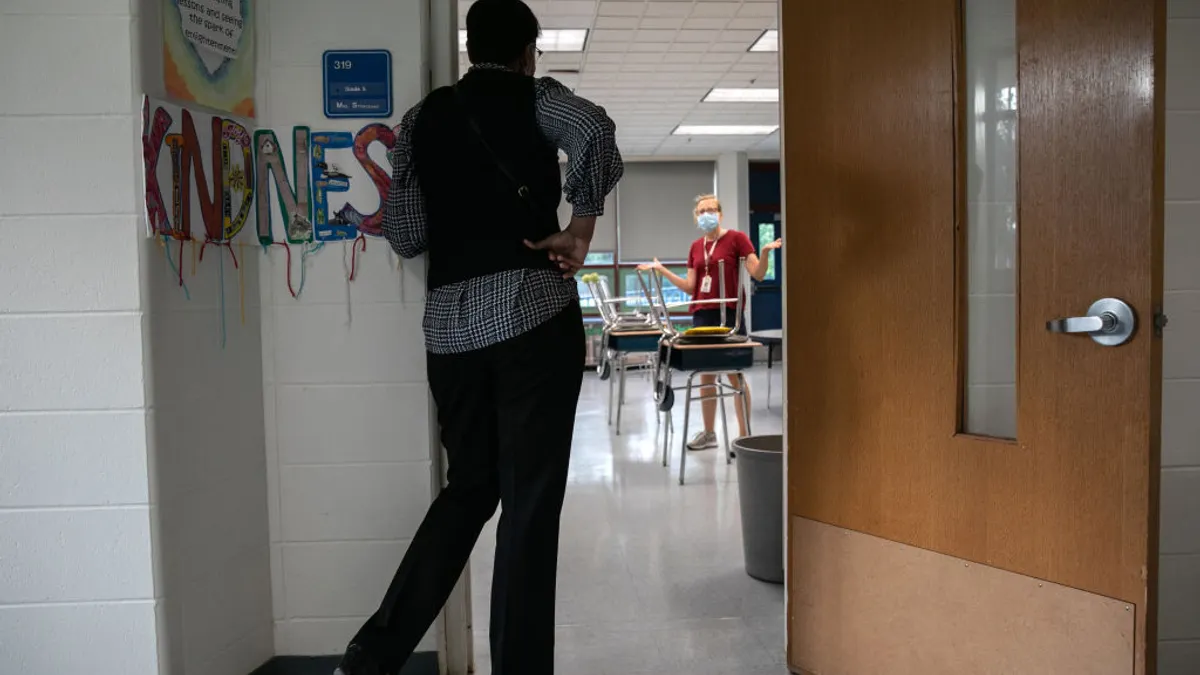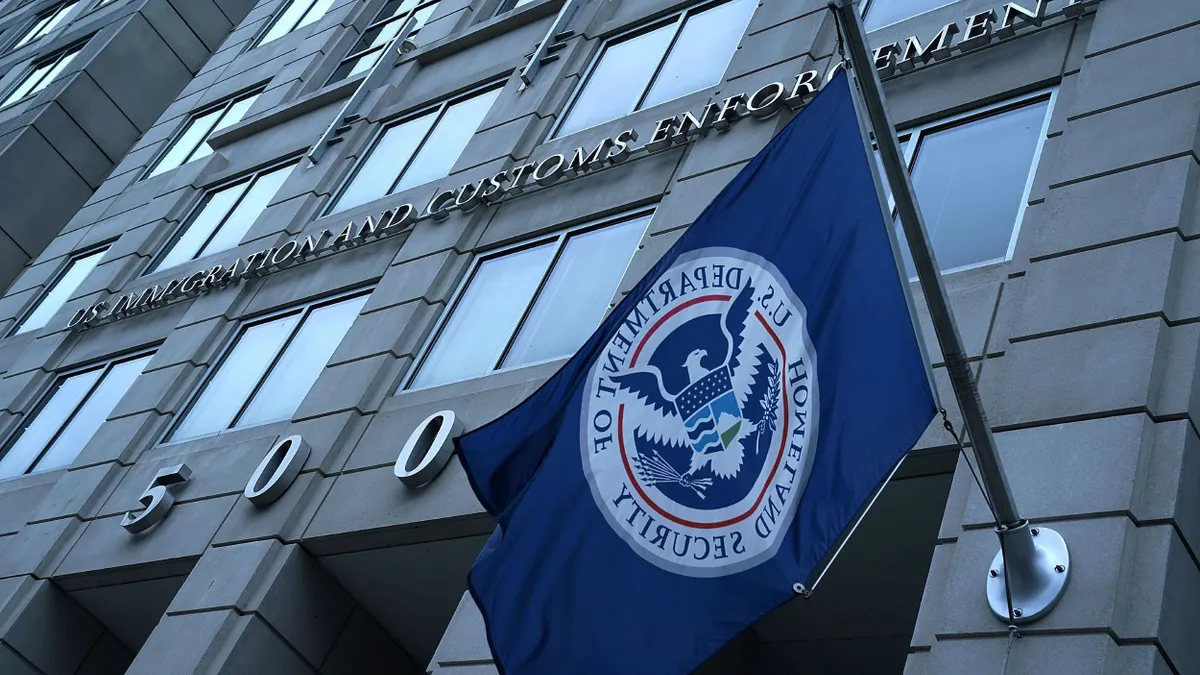The U.S. Supreme Court on Monday declined to hear two closely watched K-12 cases, one regarding a Wisconsin school district’s “gender identity support plan” policy and another on temporary admissions policies meant to diversify student bodies at three competitive Boston schools.
The court’s latest punt on trans issues in schools
In Parents Protecting Our Children v. Eau Claire Area School District, a group of parents challenged a Wisconsin school district’s enforcement of administrative guidance for student gender identity support plans.
The parents’ lawsuit alleged that the policy allowed students to change their names and pronouns and use facilities aligning to their gender identity without parent notification or consent. Educators and staff, the lawsuit claimed, were trained that “parents are not entitled to know their kids’ identities” but must “earn” that knowledge.
This, the parents argued, amounted to a violation of parents' constitutional rights that include the right to make decisions on the care and control of their children, as well as First Amendment rights to the free exercise of religion by interfering with their right to guide their children in accordance with their religious beliefs.
Gender support plans are personalized documents intended to build common understanding among staff, parents and a student about how a student’s gender identity will be accounted for and supported in school. These plans take into account factors like a student’s needs, personality, and surrounding community and family.
The 7th U.S. Circuit Court of Appeals in March upheld the case's earlier dismissal by the U.S. District Court for the Western District of Wisconsin. The district court had found that the parents failed to identify any scenario in which the policy infringed upon their parental rights.
The parents’ concerns about how the policy could be applied didn’t provide grounds to sue unless there had been injury or imminent risk of injury, the appeals court said. The court also found that the policy didn’t require that parents be excluded from discussions or decisions regarding their child’s gender expression.
The Supreme Court’s decision not to take the case was not unanimous. Justices Samuel Alito and Clarence Thomas dissented, with Alito writing that the question presented by the case — whether a school district violates parents’ constitutional rights in the raising of their children when it “encourages” or “assists” in a student’s decision to transition genders — is “a question of great and growing national importance.” The dissent went on to say, "We are told that more than 1,000 districts have adopted such policies."
Citing the wording of the Eau Claire policy and its guidance regarding training for school personnel that could “keep parents in the dark,” Alito said “the parents’ fear that the school district might make decisions for their children without their knowledge and consent is not ‘speculative.’”
The Parents Protecting Our Children case isn’t the first time in recent years the Supreme Court has punted on transgender issues in schools. In January, justices declined to hear a case on an Indiana school district’s policies barring transgender students from using bathrooms aligning with their gender identities.
In that case, the rejection upheld a 7th Circuit ruling that the Metropolitan School District of Martinsville and the student’s former principal likely violated the Title IX anti-sex discrimination law in refusing to let transgender students use bathrooms aligning with their gender identities. The decision in Metropolitan School District v. A.C covered the three states under the 7th Circuit’s purview: Illinois, Indiana and Wisconsin.
In 2021, the court also notably declined to hear Grimm v. Gloucester County School Board, a case filed in 2015 by student Gavin Grimm after his Virginia school district’s board prohibited transgender students from using bathrooms or locker rooms aligned with their gender identities.
What constitutes race-conscious admissions in K-12?
In the second K-12 case rejected by the Supreme Court on Monday, parents challenged a temporary pandemic-era admissions policy that reserved seats in three competitive magnet schools for students in grades 7-12 with the highest GPAs in each Boston neighborhood.
This policy replaced a traditional admissions system based on standardized entrance exams for Boston Latin School, Boston Latin Academy, and John D. O’Bryant School of Mathematics and Science. It was in place only during the 2021-22 school year.
While White and Asian students were still overrepresented in admissions under the temporary policy, they were less so than under the traditional test-based system.
The 1st U.S. Circuit Court of Appeals previously affirmed a district court’s ruling in the case, Boston Parent Coalition For Academic Excellence Corp. v. The School Committee for the City of Boston, finding that the parent group's claim that the temporary policy had a disparate impact on White and Asian students lacked merit. The appeals court wrote that whether the use of criteria like residence, family income and GPA was adopted in admissions to increase racial or ethnic diversity or without consideration to its likelihood to increase diversity was in the eye of the beholder.
In an opinion concurring with the court’s rejection of the case, Justice Neil Gorsuch wrote that the challenge in hearing the case is that the disputed policy is no longer in place. “The parents and students do not challenge Boston’s new policy, nor do they suggest that the city is simply biding its time, intent on reviving the old policy,” Gorsuch wrote. “Strictly speaking, those developments may not moot this case. But, to my mind, they greatly diminish the need for our review.”
But Alito, again joined by Thomas, dissented from the decision not to take the case. Alito wrote that the Boston School Committee, which began exploring changes to the three schools’ admissions processes in 2019, “put race front and center” when voting on the proposal in late 2020 — including opening the meeting “with a lengthy statement from ‘anti-racist activist’ Dr. Ibram X. Kendi.”
“We have now twice refused to correct a glaring constitutional error that threatens to perpetuate race-based affirmative action in defiance of Students for Fair Admissions,” Alito wrote, citing both the court’s refusal to hear a similar admissions case involving Virginia’s selective Thomas Jefferson High School in February and its ruling striking down race-conscious admissions in higher education in 2023.
In the latter decision, the justices struck down race-conscious admissions practices at Harvard University and the University of North Carolina at Chapel Hill as unconstitutional, overturning 1978’s landmark Regents of the University of California v. Bakke decision. The cases against the two universities were brought by Students For Fair Admissions, a conservative nonprofit that argued UNC-Chapel Hill favored Black and Hispanic students and that Harvard discriminated against Asian American students.
On Friday, however, a federal judge threw a wrench into a follow-up Students For Fair Admissions suit by upholding race-conscious admissions at the U.S. Naval Academy. The practice, U.S. Senior District Judge Richard Bennett wrote, is necessary to help the institution build “an officer corps that represents the country it protects and the people it leads.”
This was in line with the 2023 Supreme Court ruling against Harvard and UNC, where Chief Justice John Roberts said in a footnote to the majority opinion that military institutions may have “potentially distinct interests” from traditional colleges in regard to race-conscious admissions practices.




















